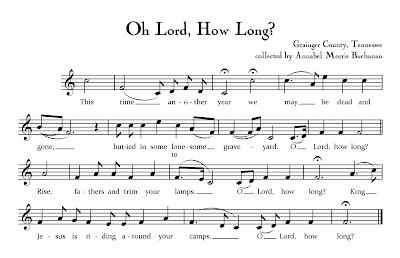
Since when did they stop asking composers about the future? It seems like only a moment ago when a Cage or Stockhausen would get asked with some regularity by big media about the future of music and matters beyond. And now?
So this site does another one of those end-of-one-year-beginning-of-the-next surveys, asking a number of the celebrated to say something wise about the future, answering, in this case, the question "WHAT WILL CHANGE EVERYTHING?" Now, I realize that they give the question an expressly scientific turn by adding a supplemental, clarifying question ("What game-changing scientific ideas and developments do you expect to live to see?"), but I don't understand why the only non-scientists asked were popular figures like Brian Eno and Ian McEwan, neither one of whom strikes me as now being at the top of the new discovery end of the game. There is news out there in Newmusicland, and many musicians are working in areas that are definitely game-changing —and not only for music — but if nobody's asking, it's because nobody's noticing. That invisibility (or, more precisely, inaudibility) will, inevitably if incorrectly, lead to the assumption that the work is irrelevant. We've got to do a better job of keeping our music present.
*****
Young, foolish, and on a student budget, my wife & I hiked and hitchhiked around the complete coast of Ireland, covering the whole coastline twice in two successive summers. We kept getting invited to weddings and wakes by drivers who picked us up. At one wake, in Sligo, someone pointed out that the bar across the street from the one we were in was also hosting a wake, but it was completely empty. I asked why? Didn't anyone like the deceased? No, came the reply, we loved him, but he died in debt, so no one wanted to show up out of fear that they'd get saddled with the bill for the funeral.
New music, especially the radical sort, ain't dead. In fact, at its best, it's kicking like a mule with many composers and musicians doing really astonishing things. But we — perhaps timid a bit due to the ever-precarious financial environment around experimental arts, and still shaken a bit by the tired old criticism (too intellectual, too dissonant, too noisy, too organized, too disorganized...) — act in public with much wariness and too little risk. But that caution — that quietism, thank you Poe & Silliman — is one step short of giving up the enterprise altogether and shows a profound lack of belief, often best seen in the way young composers tend to present themselves via resumes of awards and academic qualification rather than sharing their music and ideas about music.
We've got to do a better job, or New Music will surely have its own wake, in an empty bar, with no one showing up to pay the tab.
2 comments:
What will change everything in music?
How about this: When a live performance is no longer the standard by which a piece of music is judged successful.
Pop musicians have been retreating into the studio for some time, I realize. But by and large a contemporary composer will say his music is a success when it finds an organization willing to perform it and an audience to hear it.
Yet the infrastructure to support this has been in constant erosion - musicians have a difficult time finding work, the larger symphonies, etc are mostly in a constant state of financial distress.
At the same time, the means to create, record and distribute original music has come within the means of every serious musician.
What will change everything is the idea that music is considered important when given a hearing in the absence of an assembled audience. That a networked community will fulfill the same function as a paying public.
What will change everything in music?
The commenter above has a point. But I'd add another point: When an increasing number of new music composers remember that most musicians in this world are amateurs, not virtuosi, then things will change.
Part of the genius of Terry Riley's "In C" is that even a mediocre amateur like me could participate in a creditable performance of it. An amateur singer like me can get great joy out of singing Moses Hogan; whereas Ned Rorem's songs are out of my reach, which means as much as I may like Rorem, I have far less of an emotional connection to his compositions. More new music like "In C" and Moses Hogan will reach more people at a very intimate level.
Renaissance composers knew this, and wrote tons of stuff for amateurs. With Renaissance music, there's a long, easily sloped learning curve, from easy-to-play but very musical stuff, all the way to very difficult pieces. Ditto rock, blues, punk, hip hop, which starts at Louise Louie and goes up to, say, Frank Zappa (and at least I can sing along to Frank Zappa, whereas I can't sing along to Ned Rorem).
Post a Comment